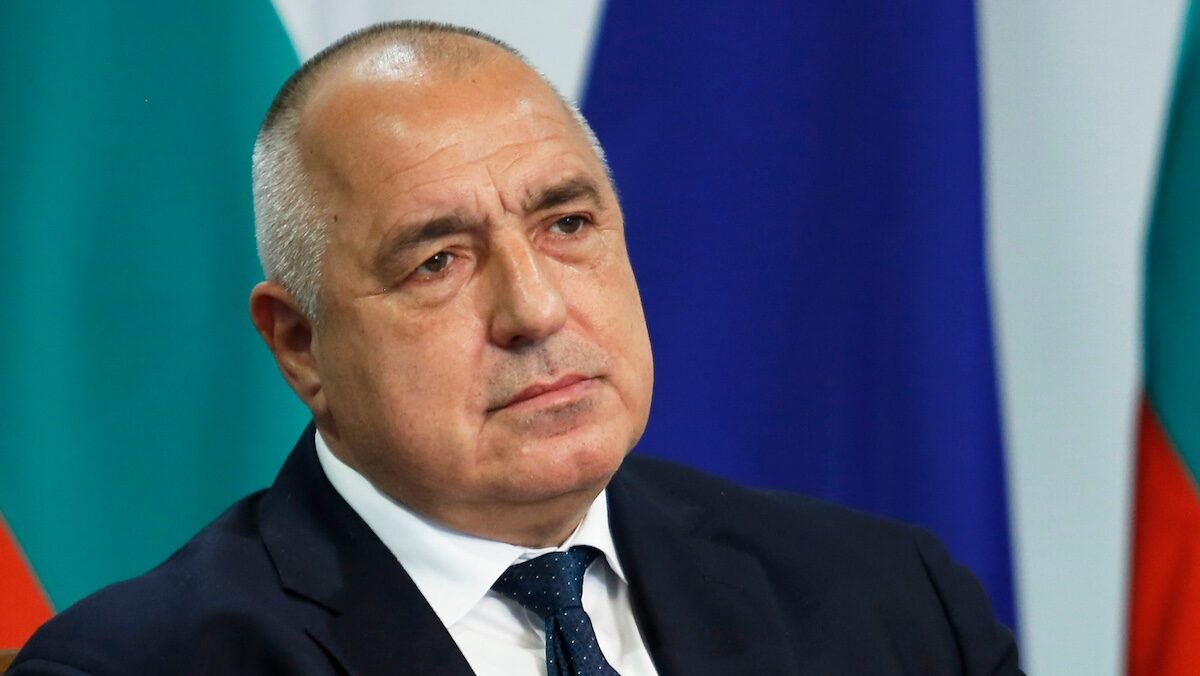
Former Bulgarian PM and GERB leader Boyko Borisov.
Photo: European Council © European Union
The centre-right Citizens for European Development of Bulgaria (GERB/EPP), which won the most parliamentary seats in October’s snap elections with 26%, announced that it was terminating the coalition talks with its three prospective partners.
Negotiations with the center-right Democratic Bulgaria (DB/EPP), the Bulgarian Socialist Party (BSP/S&D), and the conservative There Is Such A People (ITN/ECR) ended—after just two weeks, on Sunday, January 5th—due to unbridgeable disagreements over the nomination of the prime minister.
GERB initially wanted to install the controversial former prime minister Boyko Borisov as the new PM, but it was clear that hardly anyone in the coalition would back the party leader for another term. Next it reluctantly nominated Rosen Zhelyazkov, a close associate of Borisov who worked under him for 20 years.
Democratic Bulgaria rejected Zhelyazkov as well, explicitly stating from the beginning that it would only take part in the government if “a non-partisan, mutually acceptable figure” was made prime minister. Knowing that no other party could hope to form a government without GERB’s participation and that the move would likely trigger yet another election, Borisov unilaterally withdrew from the talks without even first notifying his backers’ partners.
According to an official statement from GERB on Sunday:
No agreement was reached with Democratic Bulgaria on the personal composition of a future government and the name of the candidate for prime minister … After the refusal of Democratic Bulgaria to support the first nomination of GERB Boyko Borissov for prime minister, GERB nominated Rosen Zhelyazkov. Today, Democratic Bulgaria rejected the second nomination. Because of this, GERB terminates the negotiations.
Subsequent local press reports claimed that the announcement surprised DB, which learned about it from the media. Since the party was clearly communicating its preference for a non-partisan prime minister as a dealbreaker from the start, they assumed that GERB would accept this as a basis of negotiations.
Just hours before GERB’s withdrawal announcement, DB even put out a positive statement following Sunday’s meeting, which said that “the agreement for joint governance is not yet complete, although it is at a very advanced stage.”
The situation is very reminiscent of what happened in early 2024 when GERB suddenly pulled out of coalition talks with the PP-DB alliance (Renew/EPP), with the next largest vote share, after already striking a nominal agreement to allocate prime ministers on a rotational basis. The breakdown of these negotiations then led to the seventh parliamentary election since 2021 in October last year. GERB might now be banking on the same outcome this time.
If GERB officially surrenders the mandate for forming a government, it will pass on to the PP-DB alliance, and then, as a final stage, to any party of the president’s choice. But since no other group has a real chance of succeeding without the center-right—and Borisov already vowed it would not support any mandate other than his—yet another snap election in the next months is becoming very likely.
It is worth noting that the years of political crisis are fueled not only by the establishment’s unwillingness to concede any power, but also by the fact that the third largest party, the right-wing populist Revival (ESN) is excluded from any formation despite getting only one percent less than the PP-DB in the last election.
According to the most recent polls, Revival is still in third place with 14%, trailing behind PP-DB’s 15%, and GERB’s 28%.
Bulgaria, Market Links poll:
— Europe Elects (@EuropeElects) January 3, 2025
GERB/SDS-EPP: 28% (+2)
PP/DB-RE|EPP: 15% (+1)
V-ESN: 14% (+1)
DPS/NN-NI: 13% (+1)
BSPOL-S&D|LEFT: 8%
APS-RE: 7% (-1)
ITN-ECR: 5% (-2)
MECh-*: 4% (-1)
+/- vs. October 2024 election
Fieldwork: 12-20 December 2024
Sample size: 1,007
➤… pic.twitter.com/CJteAe8uBM
